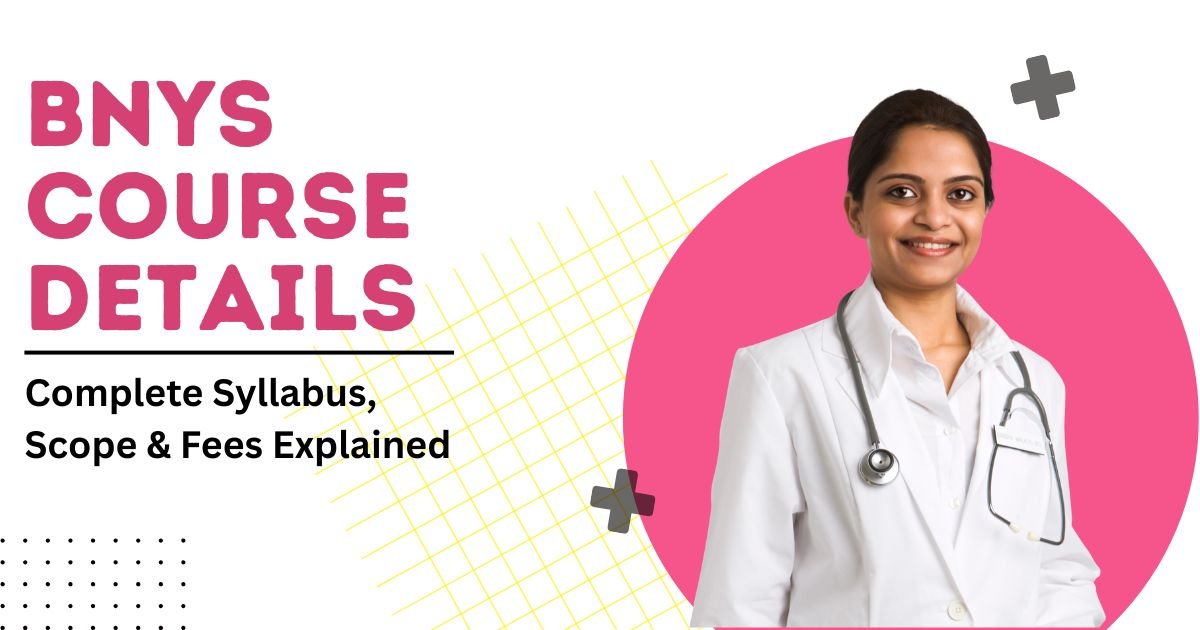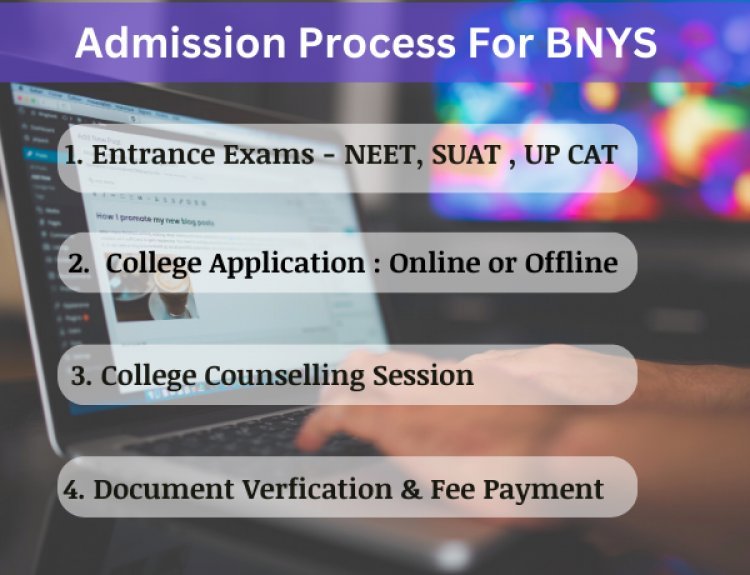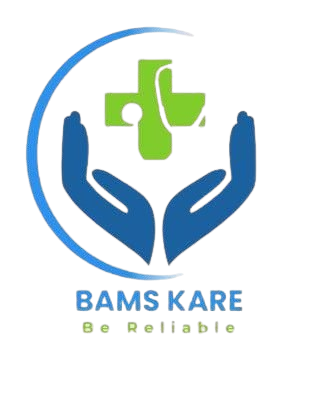
BNYS course : The Bachelor of Naturopathy and Yogic Sciences (BNYS) is an innovative course designed to equip students with a comprehensive understanding of natural healing and wellness practices. As a discipline, naturopathy emphasizes the body’s intrinsic ability to heal itself, leveraging natural remedies and techniques alongside the principles of yoga to promote holistic health. In recent years, the significance of such wellness-focused education has gained remarkable traction in the healthcare field, reflecting a societal shift toward preventative care and natural treatment modalities.
More Details Info: BNYS course
The course integrates crucial elements of both naturopathy and yoga, outlining their fundamental principles and therapeutic applications. Naturopathy encompasses various natural healing practices, including herbal medicine, nutrition, acupuncture, and lifestyle counselling, which address the root causes of ailments rather than merely alleviating symptoms. Meanwhile, yoga facilitates physical, mental, and spiritual well-being through asanas, pranayama, and meditation techniques, nurturing a sense of balance and harmony within individuals.

This integration not only enhances students’ knowledge but also better prepares them to adapt to the evolving landscape of healthcare. The growing interest in holistic and alternative therapies is indicative of a health-conscious society striving for wellness through natural means. In urban areas, individuals increasingly seek naturopathic practitioners, recognizing the value in treatments that consider the person as a whole rather than fragmented symptoms. Consequently, the demand for trained professionals in this sector is on the rise, making the BNYS course a vital stepping stone for those wishing to pursue careers in this booming field.
Eligibility Criteria for BNYS
To gain admission into the Bachelor of Naturopathy and Yogic Sciences (BNYS) program, candidates must adhere to specific eligibility criteria that encompass academic qualifications and age limits. Primarily, applicants are required to have completed their higher secondary education or an equivalent examination. This educational background should ideally include subjects such as Biology, Physics, and Chemistry, which form the foundational basis for the understanding of Naturopathy and Yoga.
Typically, candidates must have achieved a minimum percentage in their overall academic performance during their qualifying exams. Most institutions necessitate that prospective students secure at least 50% marks in their higher secondary examination, although specific percentage requirements may vary from one college to another. BNYS course is crucial for candidates to check the particular criteria set forth by the institution to which they are applying.
In addition to academic qualifications, there may be age restrictions in place. Generally, candidates should be within the age range of 17 to 25 years at the time of admission. However, some colleges may allow age relaxation for reserved category students, in adherence to guidelines set by educational authorities.
Furthermore, BNYS course aspiring candidates often have to participate in an entrance examination organized by the respective institutions or state authorities, which assesses their aptitude and knowledge relevant to the field of Naturopathy and Yogic Sciences. Selection processes may include personal interviews and counselling sessions, ensuring that candidates not only meet academic requirements but also possess the requisite interest and inclination toward the discipline. This multi-faceted selection approach aims to enrol individuals who are genuinely committed to pursuing a career in Naturopathy and Yoga.
Fees Structure for BNYS Program
The Bachelor of Naturopathy and Yogic Sciences (BNYS) program involves multiple components when considering the overall fee structure. Understanding these components can facilitate students in making informed financial decisions as they embark on this educational journey. The primary cost associated with the BNYS program is the tuition fee, which typically ranges between $3,000 to $6,000 per year, depending on the institution. This fee covers the core curriculum, including theoretical instruction and practical workshops essential for aspiring practitioners.
In addition to the tuition fees, BNYS course prospective students should account for various additional charges that may be incurred throughout the program. Practical training is a vital aspect of the BNYS curriculum, and associated costs can vary widely. Generally, students may face fees ranging from $500 to $1,500 in terms of practical training and fieldwork. Furthermore, laboratory fees, which are necessary for utilizing various essential resources and equipment, can add another $200 to $300 annually.
Other miscellaneous costs may include textbooks, uniforms, and equipment essential for the course, which may collectively amount to an additional $300 to $800 per academic year. As financial situations can vary, it is paramount for students to explore available payment plans offered by many institutions, allowing for instalment payments rather than a lump sum, thus easing the financial burden.

Moreover, BNYS course various scholarships and financial aid options are often accessible to eligible students seeking to reduce their financial strain while pursuing their BNYS studies. Institutions may offer merit-based scholarships or need-based financial assistance, enabling students to focus more on their education and less on their financial obligations. By thoroughly investigating the fee structure and available financial opportunities, students can strategically plan their funding to support their BNYS education efficiently.
Syllabus Overview for BNYS Course
The Bachelor of Naturopathy and Yogic Sciences (BNYS) course encompasses a comprehensive curriculum designed to equip students with a profound understanding of various aspects of naturopathy and yoga. The program typically spans five and a half years, with six semesters of in-depth theoretical learning, practical training, and hands-on clinical experience.
In the initial semesters, students delve into foundational subjects such as Anatomy, Physiology, and Biochemistry. Anatomy covers the structure of the human body, while Physiology explores its functions, providing students with essential knowledge for understanding health and disease mechanisms. Biochemistry serves to integrate the chemical processes occurring within living organisms, significantly aiding the understanding of metabolic pathways and nutrition.
As the course progresses, more specialized topics are introduced, including Pathology and various Naturopathic Techniques. Pathology is crucial, as it helps students identify diseases and understand the changes they cause in the body. Naturopathic Techniques cover a variety of therapeutic modalities such as hydrotherapy, acupuncture, and herbal medicine, allowing students to learn how to restore balance and promote healing through natural means.
Moreover, BNYS course curriculum includes Yoga Philosophy, which explores the principles and ethics of yoga practices. This subject underlines the holistic nature of health and wellness, emphasizing mental, physical, and spiritual well-being. Practical training is a significant aspect of the BNYS program, with students expected to undertake clinical internships that provide valuable real-world experience. Research projects may also form part of the program, encouraging students to engage in inquiry and contribute to the field of naturopathy.
Overall, the syllabus for the BNYS course is meticulously structured to develop well-rounded professionals capable of applying naturopathic principles in various healthcare settings.

